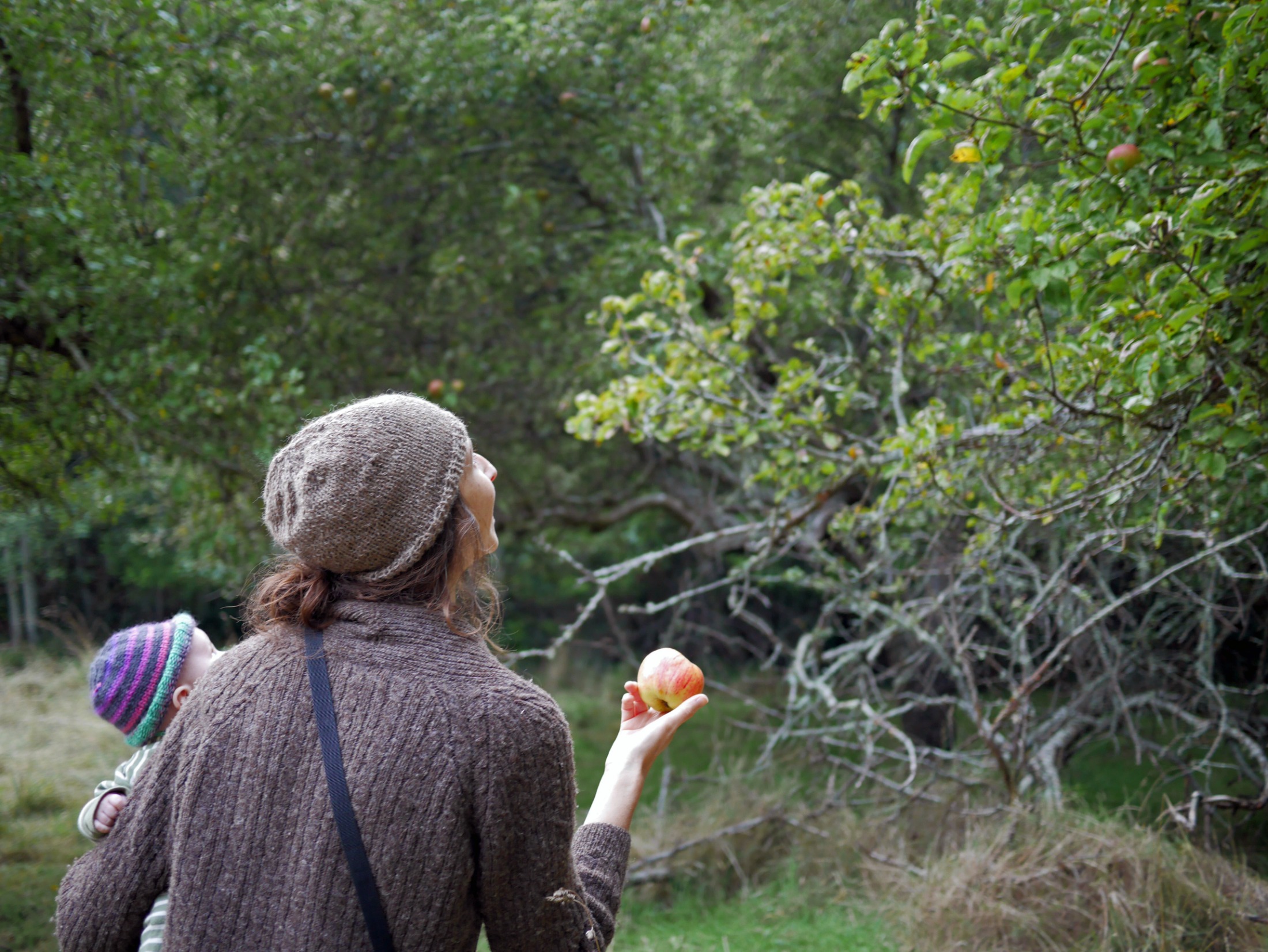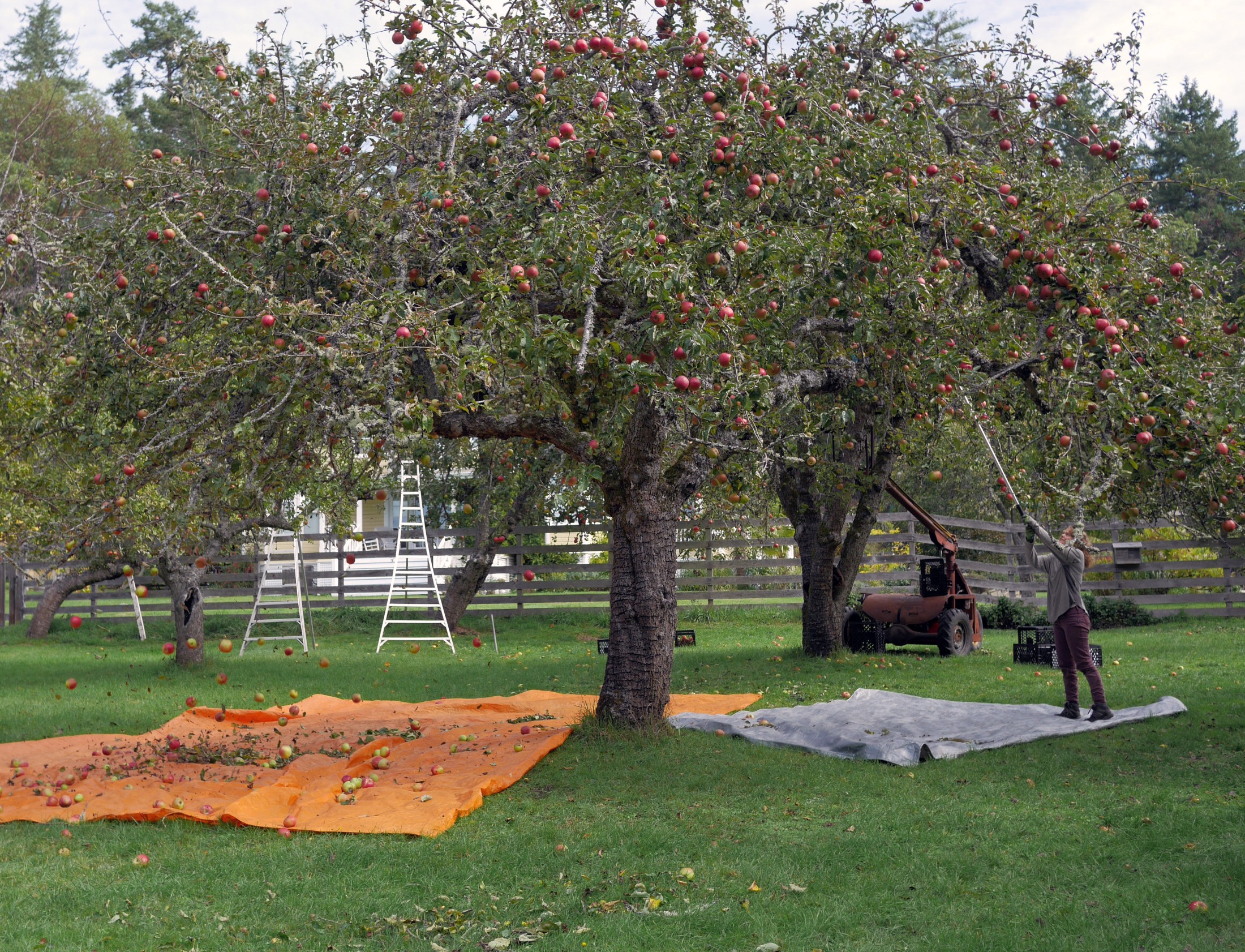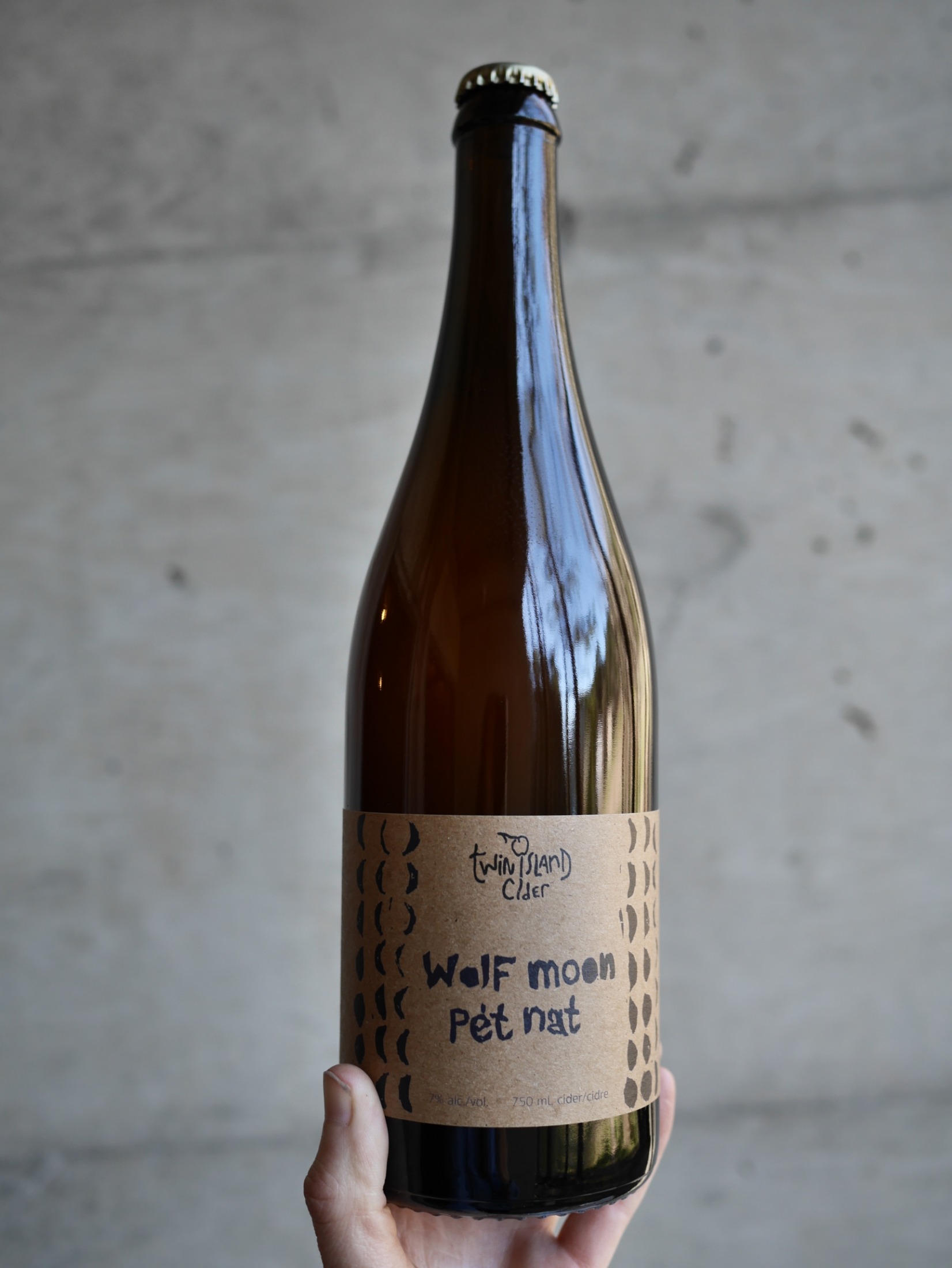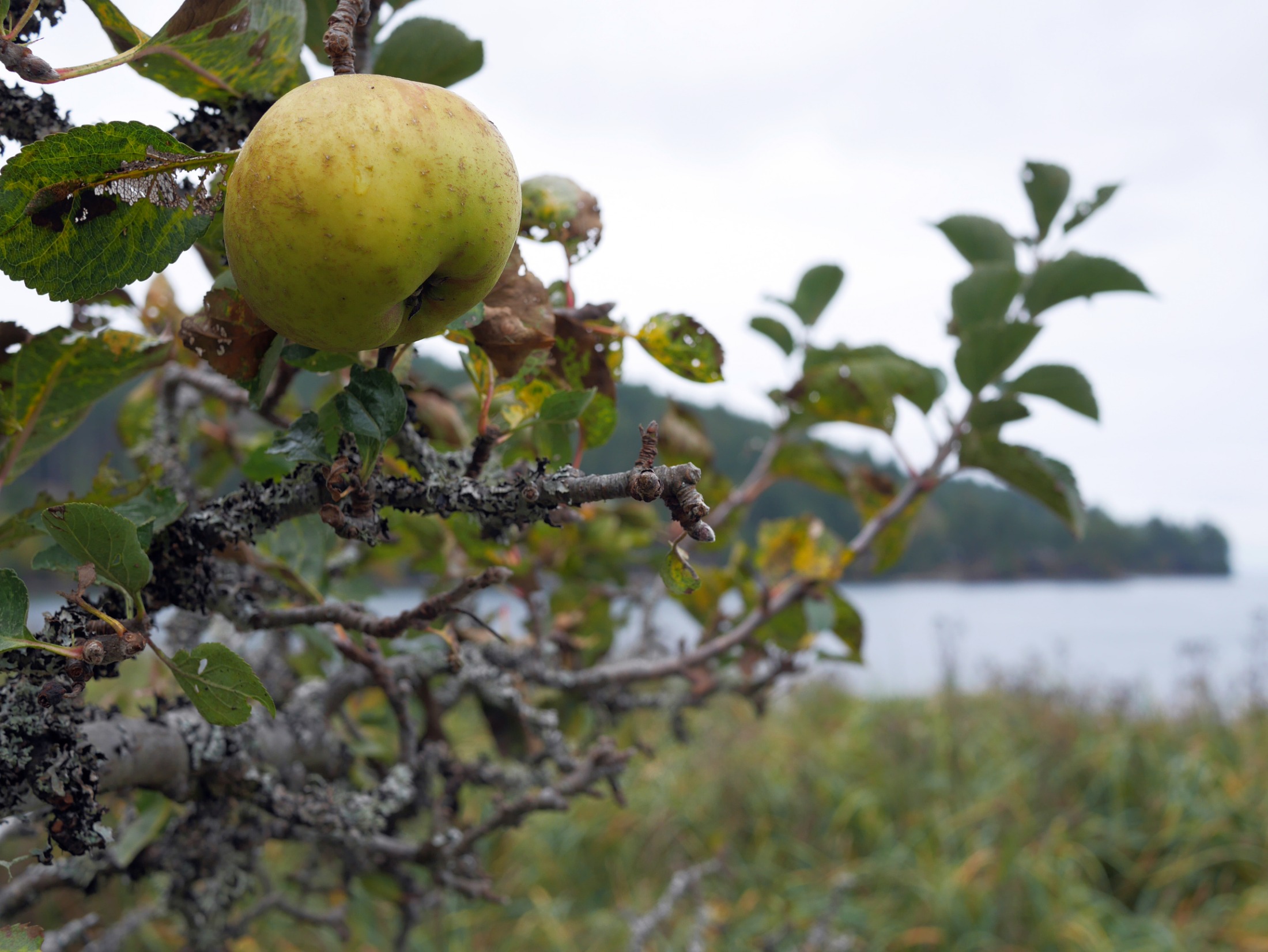“Cider is sort of a dialogue between us,” says Katie Selbee. “And it’s important to us to keep telling the stories of the trees.”
Selbee and her partner, Matthew Vasilev, are the heart, soul, and elbow grease behind Twin Island Cider, a nano land-based cidery on Pender Island that produces rich and complex ciders, embodying the history and unique terroir of the land through slow, intimate practices and native yeast fermentation.
With the help of a small team (and their brand new baby, Bridie), they are championing the integrity of sustainable, small-production craft cider by picking, harvesting, pressing, fermenting, bottling and selling the heirloom fruit of Pender, Mayne, and Saturna islands.

Twin Island Cider co-owner Katie Selbee and baby Bridie. Photo courtesy of Twin Island Cider.
More than cider makers, they are passionate stewards of the island and dutiful practitioners of both cultural and community preservation. “We’re blessed with living on an island that has up to 60,000 pounds of heirloom fruit that would otherwise go to waste,” Vasilev says.
On a crisp and golden November weekend, he and Selbee are giving me a hands-on lesson in their harvest, shaking down trees for true, branch-to-bottle craft cider.
The orchard to tackle this weekend is tucked beside Clam Bay farm, accessible through a hidden path of rugged terrain. Hopping into a beefed-up ATV, we embark on what we jokingly call “an apple safari,” dodging rogue branches and bumping along rough and tumble trails until we emerge into a secret oceanside orchard, pregnant and gleaming with Newtown Pippins.
It turns out, harvesting apples doesn’t always involve a ladder and manual apple-off-the-branch picking. Instead, we fan several tarps around the base of the tree and Vasilev climbs up and rattles the limbs, generating a glorious apple shower that, even after an afternoon of repetition, never loses its awe-factor.

Twin Island Cider’s Carla Turner harvesting apples. Photo courtesy of Twin Island Cider.
“With the 120-year-old trees on the island, the natural thing for us to do is wild fermentation,” Selbee explains. “The wild trees have history and the varieties represent the terroir through the local bacteria.”
“We’re living in a little Garden of Eden that has a huge historical context. We really want to focus on this local story,” adds Vasilev.
Last year, the Twin Island duo harvested apples and pears from 48 properties, some residential, some orchards. Operating out of a small garage filled with equipment they built themselves, their focus is on the natural fermentation process and on pruning, restoring and harvesting the orchards of old trees that surround them.
“We found a way to say [to the Pender Island community] that this is for all of our benefit. We extend the life of the trees, the home owners get cider, and then they get to be a part of something as a community,” Vasilev says.
Back in the tasting room post-harvest, we dive into bottles of Old Growth Dry, Harvest, and Homestead Blend (Twin Island’s nod to pure cider making), and nip a little premature taste from the yearly Pét-Nat.

Twin Island Cider’s 2018 Wolf Moon Pét Nat. Photo courtesy of Twin Island Cider.
Twin Island bottles three to four ciders every year, embodying the same blend concept—although, with wild fermentation no recipe can ever be replicated exactly—alongside six to seven new cider blends.
“If you care about food, you should care about local wine,” Vasilev says, “and if you care about local wine you should care about the local cider made on this level of tradition and care.”
Bottles, kegs and growlers of Twin Island Cider are available in their tasting room, and in various liquor stores and restaurants across Vancouver and the B.C. Gulf Islands.
Read more Food and Drink stories here.









